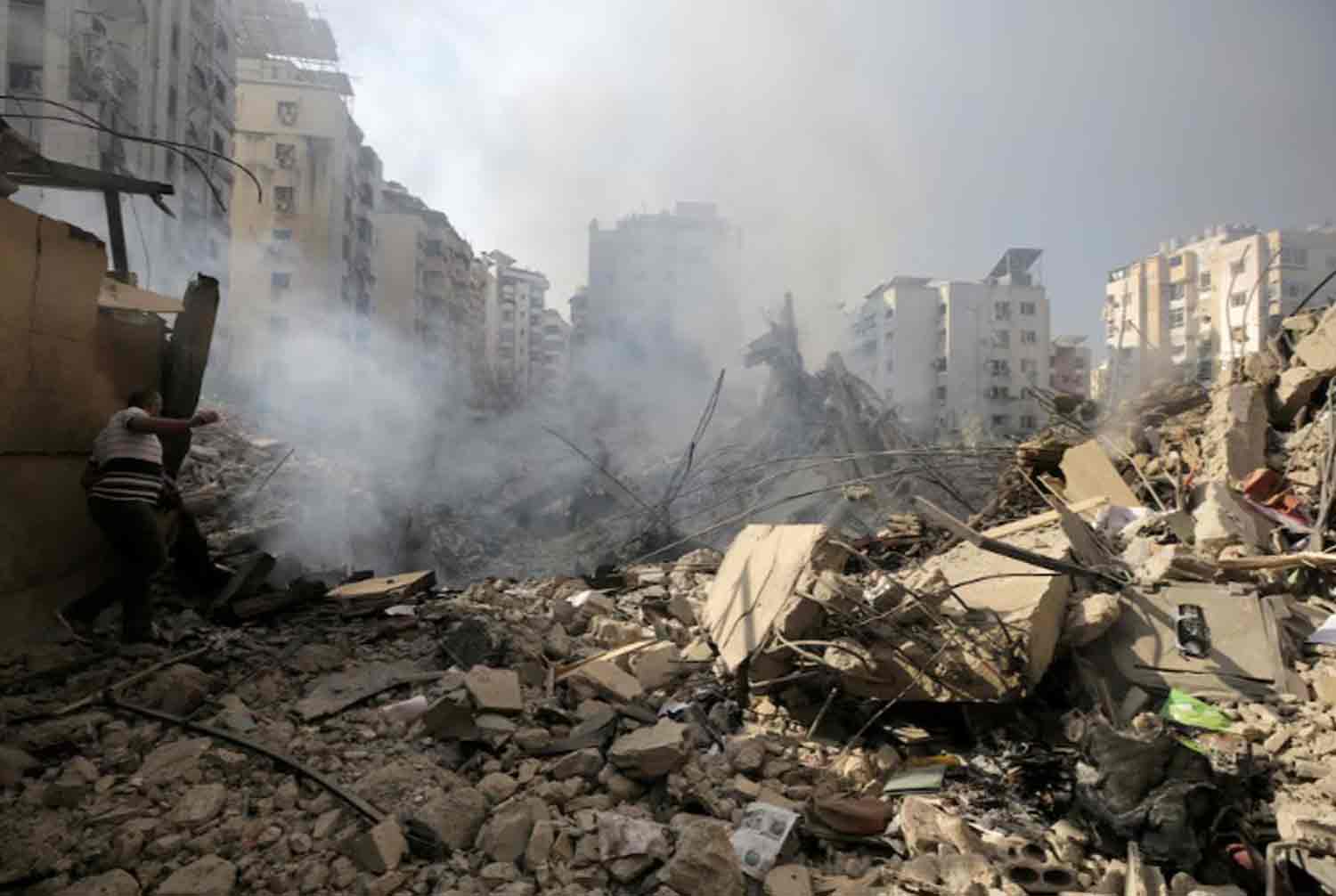An Israeli airstrike targeted the northern Lebanese city of Tripoli for the first time early Saturday, according to a Lebanese security source. This attack followed increased bombardment in the suburbs of Beirut, as Israeli forces attempted to advance into southern Lebanon.
The source informed Reuters that a Hamas official, along with his wife and two children, lost their lives in the strike on a Palestinian refugee camp in Tripoli. Media outlets affiliated with Hamas reported that the strike resulted in the death of a leader from the group’s military wing.
The Israeli military has not yet provided a response regarding the Tripoli strike, which occurred in a predominantly Sunni port city. In recent weeks, Israel has significantly intensified its operations in Lebanon, following nearly a year of hostilities with Hezbollah, an Iran-backed armed group. Previously, the fighting had primarily been confined to the Israel-Lebanon border, coinciding with Israel’s ongoing conflict in Gaza against Hamas.
Israel has been conducting nightly airstrikes on the southern suburbs of Beirut, a Hezbollah stronghold. During the night, a military spokesperson issued three evacuation alerts for residents in the area, after which witnesses reported hearing at least one explosion.
On Friday, Israel announced that it had conducted strikes on Hezbollah’s intelligence headquarters located in the southern suburbs and was currently evaluating the extent of the damage following a series of attacks targeting high-ranking members of the organization.
Israel has successfully removed a significant portion of Hezbollah’s senior military leadership, including Secretary General Sayyed Hassan Nasrallah, who was targeted in an airstrike on September 27.
According to the Lebanese government, over 2,000 individuals have lost their lives in the country over the past year, with the majority of casualties occurring in the last two weeks. There has been a notable increase in attacks on medical personnel and facilities, including the Lebanese Red Cross, public hospitals, and rescue teams associated with Hezbollah.
The Lebanese government reports that more than 1.2 million people have been displaced from their homes, while the United Nations indicates that most shelters for the displaced in Lebanon are at capacity. Many have sought refuge in northern areas such as Tripoli or in neighboring Syria; however, an Israeli strike on Friday has resulted in the closure of the primary border crossing between Lebanon and Syria. U.N. spokesperson Stephane Dujarric described the impact on Lebanese civilians as “totally unacceptable.”
ISRAEL EVALUATING OPTIONS
Israel is currently evaluating its options in response to the ballistic missile attack from Iran that occurred on Tuesday. The potential for an assault on Iran’s oil infrastructure has led to an increase in oil prices, as Israel aims to counter Hezbollah militants in Lebanon and eliminate their Hamas allies in Gaza, who are also supported by Tehran.
U.S. President Joe Biden urged Israel on Friday to explore alternatives to targeting Iranian oil fields, suggesting that Israel has not yet made a definitive decision on how to address the situation with Iran.
In a rare public appearance during Friday prayers, Iran’s Supreme Leader Ayatollah Ali Khamenei addressed a large audience in Tehran, asserting that Iran and its regional partners would remain resolute.
Iranian Foreign Minister Abbas Araqchi arrived in Syria on Saturday for discussions following his visit to Lebanon, where he reaffirmed support for both Lebanon and Hezbollah.
In the southern suburbs of Beirut, a stronghold of Hezbollah, many structures lie in ruins. Nouhad Chaib, a 40-year-old man displaced from the south, expressed his uncertainty about the future, stating, “We’re alive but don’t know for how long.”
On Friday, Hezbollah reportedly launched over 200 rockets into Israel, as confirmed by the Israeli military, with air raid sirens continuing to sound in northern Israel on Saturday.
The recent escalation in the long-standing Israeli-Palestinian conflict was ignited by an attack from the Palestinian Hamas group on October 7, 2023, which resulted in 1,200 fatalities and approximately 250 hostages, according to Israeli sources. In retaliation, Israel’s military actions in Gaza have led to the deaths of over 41,000 Palestinians, as reported by Gaza’s health ministry, and have displaced nearly the entire population of Gaza.
GROUND OPERATIONS
The Lebanese government has accused Israel of deliberately targeting civilians, highlighting the deaths of numerous women and children. However, it has not provided a breakdown of the total death toll between civilians and Hezbollah fighters.
Israel asserts that its operations focus on military targets and that it takes precautions to minimize civilian casualties. It claims that Hezbollah and Hamas conceal themselves among civilian populations, a charge that both groups deny.
This week, Israel initiated ground operations in southern Lebanon, concentrating on border villages while stating that Beirut is not a target. The duration of the ground incursion remains unspecified.
The objective of these operations is to facilitate the return of tens of thousands of Israeli citizens who were forced to evacuate from the north due to Hezbollah’s bombardments, which commenced on October 8, 2023.
Iran’s missile strikes were partially a response to Israel’s elimination of Nasrallah, a key figure who had transformed Hezbollah into a significant military and political entity with influence throughout the Middle East.
Axios reported that three Israeli officials indicated Hashem Safieddine, who is rumored to be Nasrallah’s successor, was targeted in an underground bunker in Beirut on Thursday night, though his current status remains uncertain.
Israeli Foreign Minister Israel Katz shared a photo of Safieddine alongside Nasrallah on X on Saturday, calling on Khamenei to “take your proxies and leave Lebanon.”
Discover more from Defence Talks | Defense News Hub, Military Updates, Security Insights
Subscribe to get the latest posts sent to your email.





